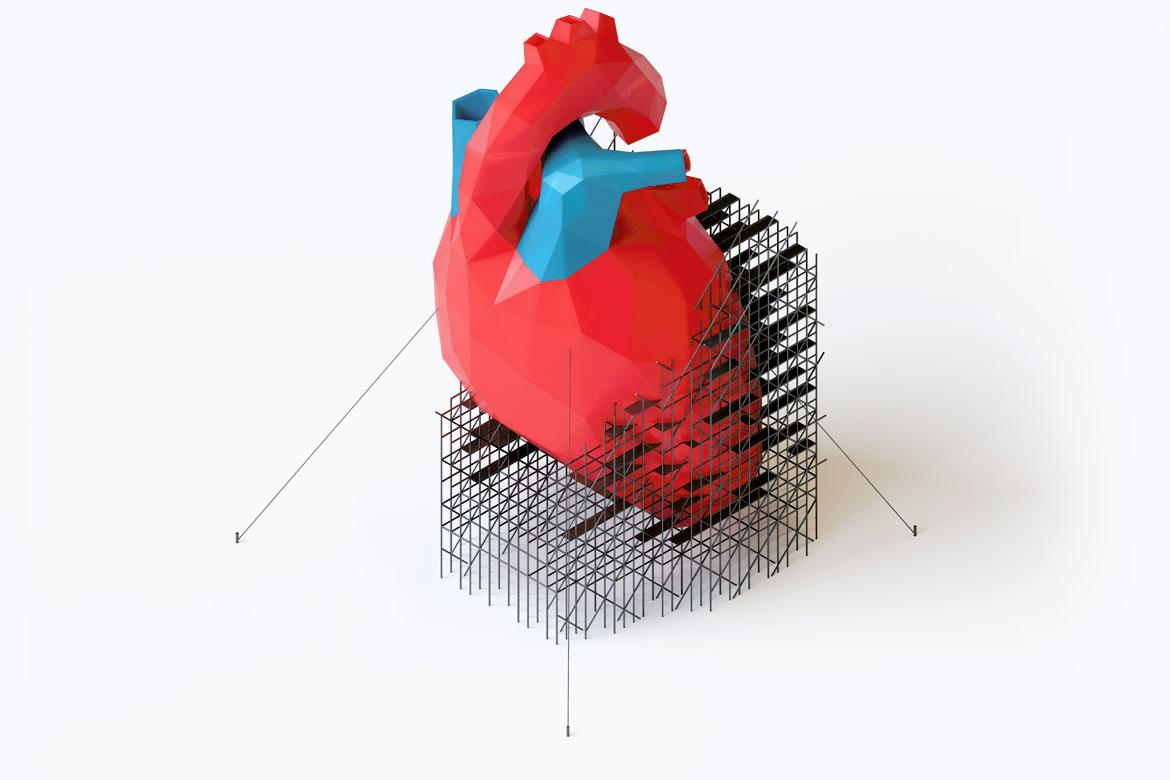-
-
Featured Care Areas

Angina Pectoris (Chest Pain)
How is angina diagnosed?
Your doctor will perform a physical exam and ask about your symptoms, risk factors and family history of heart disease.
Diagnostic tests
Your doctor may also recommend the following tests:
- Electrocardiogram (ECG) to record your heart's electrical activity through electrodes (small, plastic patches that stick to the skin).
- Echocardiogram, which uses ultrasound to produce images of your heart.
- Exercise stress test, which involves running or walking on a treadmill to determine how well your heart responds during exertion. This may be combined with other tests, such as echocardiography.
- Blood tests to check your levels of cholesterol, triglycerides, sugar and other risk factors of coronary artery disease.
- Chest X-ray to check for other conditions that might explain your symptoms and to see if you have an enlarged heart.
- Cardiac magnetic resonance imaging (cardiac MRI), a non-invasive procedure that uses magnets and radio waves to produce detailed images of your heart.
- CT coronary angiogram, a non-invasive scan that uses a contrast dye to produce detailed images of your heart's arteries.
- Coronary angiography, an invasive procedure that uses a contrast dye and x-rays to see how blood flows through your heart's arteries.
Tip: Protect your heart through regular health screenings. Heart disorders usually have 'silent' symptoms. Check your heart's health regularly to identify hidden risks and gain peace of mind.
How is angina treated?
Treatment for angina typically combines lifestyle changes and medication. In more severe cases, your doctor may also recommend medical procedures and surgery. The goals of treatment are to reduce frequency and severity of chest pains and to lower your risks of a heart attack and death.
Lifestyle changes
To improve your heart health, you should:
- Prioritise sleep. Everyone needs a minimum of 7 hours per night.
- Exercise regularly. Cardio (aerobic) exercise can help to manage weight, high cholesterol and high blood pressure. Your doctor will give you a guide as to what exercise you can do with angina.
- Maintain a healthy body weight. Losing weight can help to reduce risk factors significantly.
- Consume a healthy, balanced diet. Aim for more fruits, vegetables, whole grains, legumes and nuts.
- Reduce stress as much as possible. Practise stress management techniques such as deep breathing exercises, meditation and mindfulness.
- Quit smoking. Quitting is one of the best ways to improve your condition, as smoking is a major risk factor.
Medication
To improve your condition, your doctor may recommend the following medication:
- Nitrates to relax and widen your blood vessels, allowing more blood to flow to your heart muscle.
- Blood clot-preventing drugs to reduce the ability of your blood to clot, making it easier for blood to flow through narrowed heart arteries.
- Beta-blockers to reduce blood pressure and heart rate.
- Statins to prevent heart attacks.
- Calcium channel blockers to reduce blood pressure and relieve angina.
- Angiotensin-converting enzyme inhibitors to reduce blood pressure.
Medical procedures and surgery
Your doctor may also recommend the following medical procedures and surgery to treat angina.
- Coronary angioplasty and stenting, a minimally invasive procedure that opens narrowed or blocked coronary arteries through a balloon (balloon angioplasty). Your doctor may insert a small wire mesh coils (stents) to keep the arteries open.
- Coronary artery bypass surgery, an open-heart surgery that creates an alternate route for blood to flow around a coronary artery blockage.
- External counterpulsation (ECP), which involves wearing blood pressure monitoring-type cuffs around your calves, thighs and pelvis to increase blood flow to your heart.
This page has been reviewed by our medical content reviewers.
Need help?
For enquiries, please call
+65 6250 0000 (Orchard) or +65 6898 6898 (Novena)
For appointment bookings, please WhatsApp
+65 8111 7777 (Orchard) or +65 8111 5777 (Novena)








